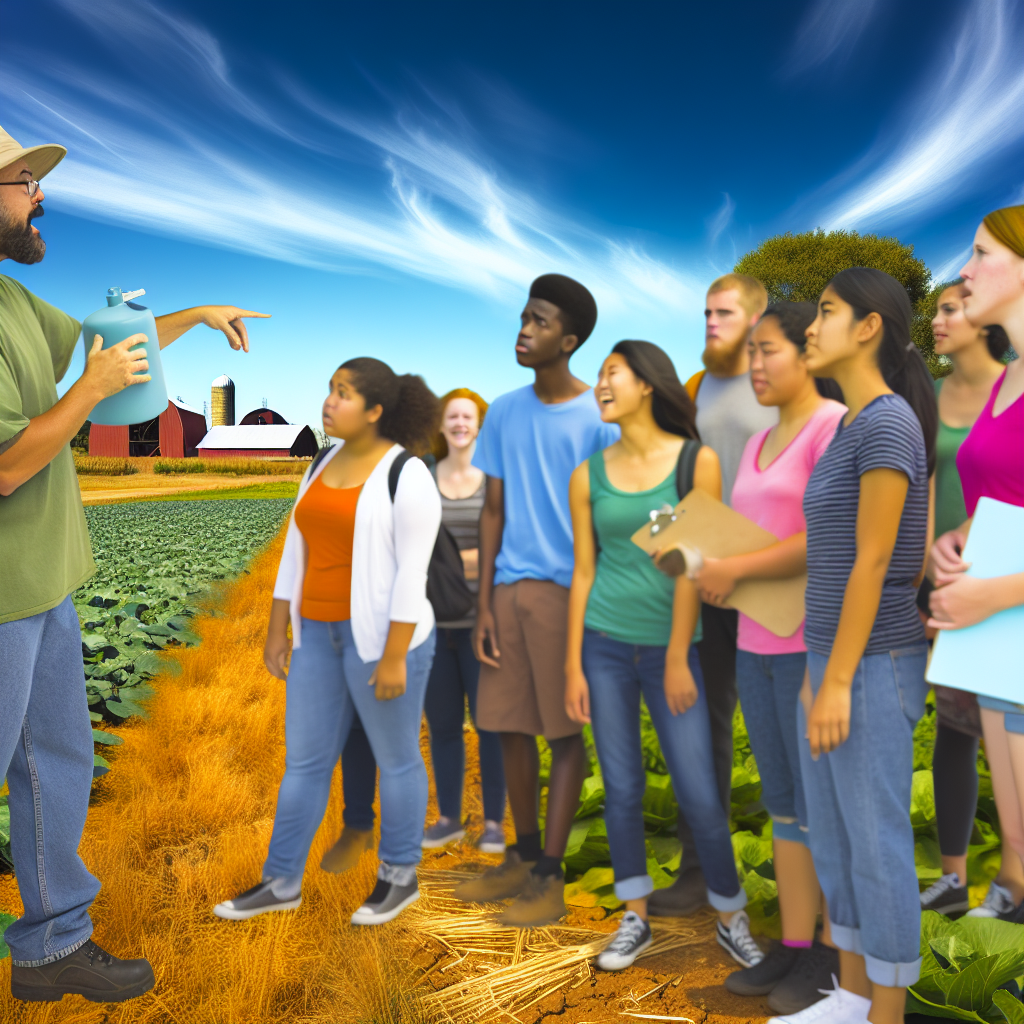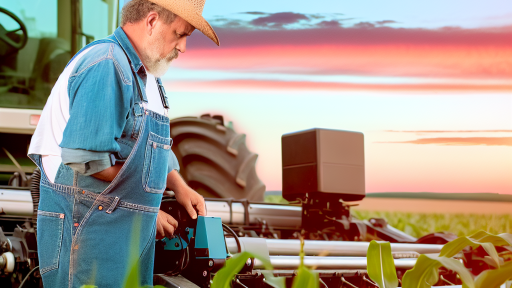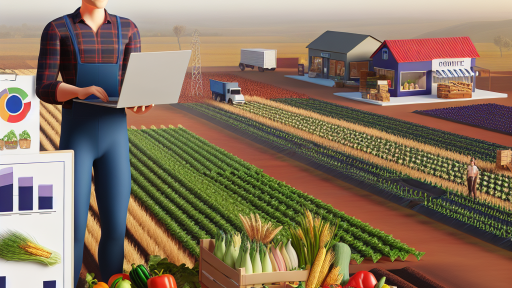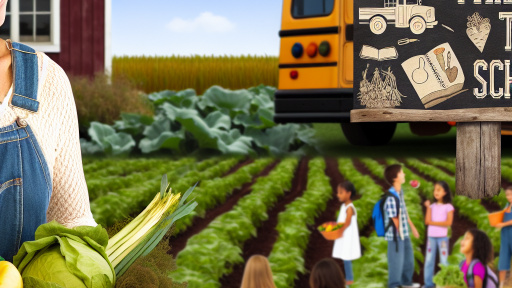Introduction to Agri-Tourism
Agri-tourism combines agriculture and tourism in a unique way.
This approach allows visitors to experience farm life firsthand.
Visitors can participate in various farm activities.
Agri-tourism serves as an educational platform for many.
This form of tourism promotes understanding of agricultural practices.
Definition of Agri-Tourism
Agri-tourism refers to the practice of visiting farms for recreation.
It often includes activities such as farm tours and crop picking.
This area of tourism supports local economies and farmers.
Moreover, it fosters a connection between consumers and the food system.
Overview of Agri-Tourism
Agri-tourism has gained popularity in recent years.
It caters to environmentally conscious consumers seeking authentic experiences.
Many farms offer educational workshops and hands-on activities.
These experiences illustrate sustainable farming practices effectively.
Additionally, agri-tourism helps preserve farmland and rural communities.
Benefits of Agri-Tourism
Agri-tourism creates additional income opportunities for farmers.
Transform Your Agribusiness
Unlock your farm's potential with expert advice tailored to your needs. Get actionable steps that drive real results.
Get StartedIt diversifies farm revenue streams and reduces economic risks.
Furthermore, it encourages visitors to support local products.
This support can lead to a greater appreciation for agriculture.
Ultimately, agri-tourism promotes environmental awareness among tourists.
The Benefits of Agri-Tourism for Farmers and Communities
Providing Additional Revenue Streams
Agri-tourism offers farmers a new source of income.
Many farms depend solely on traditional agriculture for revenue.
By diversifying, they can reduce financial risks.
Visitors pay for experiences like picking fruit or farm tours.
This extra income can support family living expenses.
Moreover, farmers can invest back into their operations.
Encouraging Community Engagement
Agri-tourism fosters closer ties within local communities.
Farmers can collaborate with local businesses for mutual benefit.
Events like harvest festivals promote community spirit.
Visitors become more aware of local culture and heritage.
These events draw people to rural areas, benefiting everyone.
Educating Visitors About Agriculture
Agri-tourism provides educational experiences for visitors.
Guests learn about sustainable farming practices firsthand.
They gain insights into how food is produced.
Workshops can teach important skills like canning and cooking.
As a result, people become more connected to their food sources.
Boosting Local Economies
Agri-tourism can stimulate local economies significantly.
Increased visitors lead to higher spending in surrounding areas.
This includes hotels, restaurants, and shops catering to tourists.
As a result, local job opportunities may increase.
Showcase Your Farming Business
Publish your professional farming services profile on our blog for a one-time fee of $200 and reach a dedicated audience of farmers and agribusiness owners.
Publish Your ProfileCommunities can reach new markets through exposure and word of mouth.
Promoting Sustainable Practices
Agri-tourism encourages sustainable farming practices.
Farmers demonstrate eco-friendly methods to visitors.
Tourists learn about conservation and resource management.
Such practices help ensure environmental health for future generations.
In turn, it promotes a positive image of agricultural life.
Educational Experiences: Workshops and Farm Tours
Interactive Workshops
Engaging workshops provide hands-on learning for visitors.
Participants can dive into topics like organic farming and sustainable practices.
Experienced farmers lead the sessions, sharing their insights and stories.
This approach fosters a deeper connection to agriculture.
Moreover, attendees often leave with practical skills and knowledge.
Workshops may also include cooking demonstrations featuring farm-fresh ingredients.
Guided Farm Tours
Guided farm tours offer an immersive experience for visitors.
Each tour highlights various aspects of day-to-day farm operations.
Guests can observe livestock care and crop cultivation firsthand.
Farmers narrate the history of their land and the significance of their practices.
Additionally, tours can end with tastings of locally produced items.
This not only supports local businesses but also enhances learning.
Education on Sustainability
Farm tours often include discussions about sustainability efforts.
Visitors learn about methods to reduce environmental impact in agriculture.
Topics include water conservation, soil health, and biodynamic farming.
Experts explain how these practices ensure food security for the future.
Furthermore, participants can ask questions and engage in discussions.
Benefits of Learning in Nature
Learning in natural settings enhances understanding and retention.
Studies show that outdoor education promotes curiosity and appreciation for nature.
Moreover, these experiences often inspire participants to adopt sustainable habits.
Visiting a working farm provides a unique perspective rarely found in classrooms.
Ultimately, agri-tourism serves as a powerful learning platform.
See Related Content: Sustainability Tips for Community Supported Agriculture Farms
Integrating Sustainability Education into Agri-Tourism
Defining Agri-Tourism
Agri-tourism combines agriculture and tourism effectively.
It offers visitors a chance to experience farm life.
Farm stays and tours immerse visitors in the agricultural process.
Importance of Sustainability Education
Sustainability education is crucial in today’s world.
It fosters awareness about environmental impact.
Moreover, it encourages responsible consumption and production.
Creating Interactive Learning Experiences
Agri-tourism can facilitate hands-on learning opportunities.
Farmers can host workshops on sustainable practices.
Visitors can participate in eco-friendly farming activities.
Workshops on Sustainable Practices
Workshops can cover topics like crop rotation.
They may also include organic farming methods.
Showcase Your Farming Business
Publish your professional farming services profile on our blog for a one-time fee of $200 and reach a dedicated audience of farmers and agribusiness owners.
Publish Your ProfileThis approach promotes knowledge sharing among participants.
Eco-Friendly Activities
Engaging activities can make learning enjoyable.
Visitors can help in planting trees or harvesting crops.
These experiences foster a connection to the environment.
Partnerships with Educational Institutions
Agri-tourism businesses can partner with schools.
Collaborative programs can enhance learning experiences.
Students can conduct projects on-site, bridging theory with practice.
Field Trips and Research Opportunities
Field trips can provide real-world learning experiences.
Students can observe sustainable practices in action.
This exposure can inspire future environmental stewardship.
Utilizing Technology for Engagement
Technology can enrich agri-tourism education.
Online resources can complement on-site visits.
Virtual tours can reach a wider audience globally.
Social Media Campaigns
Social media can spread awareness about sustainability.
Sharing photos and videos can engage potential visitors.
It also encourages conversations around sustainable practices.
Mobile Apps for Learning
Apps can provide interactive educational content.
They can include quizzes and challenges related to agriculture.
Such tools can enhance visitor engagement and retention.
See Related Content: Building Biodiversity In Sustainable Agriculture
The Role of Technology in Enhancing Visitor Education
Innovative Learning Tools
Technology introduces innovative learning tools in agri-tourism.
Visitors engage with interactive apps designed for educational purposes.
These tools can provide real-time information about farming practices.
Moreover, augmented reality enhances the learning experience.
Visitors can visualize processes through immersive digital experiences.
Online Resources and Accessibility
Web-based resources expand accessibility for visitors.
Farmers can create informative websites that showcase their practices.
Blogging and video content provide insights into daily operations.
Visitors benefit from educational podcasts that cover various agricultural topics.
Social Media Engagement
Social media platforms play a crucial role in visitor education.
Farmers can share updates and interactive content directly with audiences.
Engagement through live Q&A sessions fosters a two-way communication channel.
Visitors appreciate behind-the-scenes insights through posts and stories.
Data-Driven Insights
Data analytics transforms visitor engagement strategies.
Farmers can analyze visitor feedback to tailor educational offerings.
Understanding visitor demographics helps customize experiences.
Additionally, real-time data aids in enhancing operational efficiency.
Mobile Learning Opportunities
Mobile technology allows for learning on the go.
Visitors can access educational content while touring the farm.
Interactive maps guide visitors through specific learning stations.
Showcase Your Farming Business
Publish your professional farming services profile on our blog for a one-time fee of $200 and reach a dedicated audience of farmers and agribusiness owners.
Publish Your ProfileMoreover, quizzes and games can promote knowledge retention.
Sustainability Education
Technology facilitates education on sustainable farming practices.
Interactive workshops can engage visitors in eco-friendly methods.
Additionally, online courses provide deeper knowledge of agricultural sustainability.
This approach nurtures responsible consumer behaviors in visitors.
You Might Also Like: Maximizing Yield With Sustainable Farming Practices

Case Studies: Successful Agri-Tourism Projects and Their Learning Impact
Farm to Fork: The Learning Journey
Farm to Fork offers a hands-on experience for visitors.
This project promotes sustainable agricultural practices.
Moreover, it teaches visitors about local food systems.
Workshops connect guests with local farmers directly.
Guests learn the significance of seasonal produce.
Additionally, cooking classes showcase local ingredients.
As a result, participants leave with newfound knowledge.
Such experiences ignite interest in sustainable living.
The Barn Experience: Engaging Youth
The Barn Experience focuses on educating children about farming.
This program features interactive sessions with animals.
Children learn critical thinking through nature-based activities.
Workshops encourage kids to plant their own gardens.
Furthermore, they explore topics of food production.
Through playful interactions, learning becomes fun.
Parents appreciate the educational value of this program.
History on the Farm: Cultural Education
History on the Farm combines agriculture with local history.
This program traditional farming techniques in a historical context.
Guided tours narrate stories of ancestral farming practices.
Visitors gain insights into cultural heritage and sustainability.
Workshops allow guests to create traditional crafts.
By blending education with engagement, this project thrives.
Moreover, it instills a sense of respect for history.
Eco-Tours: Exploring Biodiversity
Eco-Tours focus on the unique ecosystems of the farm.
Visitors embark on guided nature walks through diverse habitats.
This immersive experience teaches about local flora and fauna.
Additionally, workshops address conservation efforts on the farm.
Participants learn about the importance of biodiversity.
As a result, they understand how agriculture impacts ecosystems.
Farm Markets: Community Engagement
Farm Markets enhance community ties through agri-tourism.
These markets showcase local produce and handmade goods.
Visitors can meet the farmers behind the products.
Moreover, markets host educational workshops on cooking.
This initiative promotes healthy eating habits among attendees.
Guests leave with practical tips for incorporating local foods.
Showcase Your Farming Business
Publish your professional farming services profile on our blog for a one-time fee of $200 and reach a dedicated audience of farmers and agribusiness owners.
Publish Your ProfileSuch events strengthen community bonds and awareness.
You Might Also Like: Farm-To-Table Ethical Animal Care
Challenges in Educating Visitors Through Agri-Tourism
Understanding Visitor Expectations
Visitors to agri-tourism sites often have varied expectations.
Many seek entertainment rather than education.
Thus, aligning educational content with their interests is crucial.
However, this alignment poses significant challenges for operators.
Communicating Complex Concepts
Agricultural processes can be complex and intricate.
Visitors may struggle to grasp these details in a short visit.
Moreover, technical jargon can alienate some guests.
Therefore, simplifying information without losing its essence is essential.
Resource Constraints
Agri-tourism ventures often face budget limitations.
Financial resources may restrict available educational materials.
Additionally, staff training may not receive the necessary focus.
This can compromise the quality of the educational experience.
Engaging Different Learning Styles
Visitors learn differently based on their individual styles.
Some prefer hands-on experiences while others enjoy visual aids.
Finding a balance that accommodates all styles can be challenging.
Furthermore, group dynamics can complicate personalized engagement.
Logistical Challenges
Accessing remote farms may pose logistical issues for visitors.
Transportation difficulties can hinder attendance at educational events.
Additionally, scheduling conflicts may arise during peak farming seasons.
Thus, planners must consider these factors through effective scheduling.
Future Trends in Agri-Tourism Education and Visitor Engagement
Embracing Technology Integration
Technology significantly enhances the educational experience in agri-tourism.
Virtual reality offers immersive experiences of farming practices.
Augmented reality applications allow visitors to interact with crops and livestock.
Moreover, mobile apps provide real-time information and interactive guides.
These technologies foster greater engagement with the agricultural process.
Focus on Sustainability Education
Sustainability remains a critical topic in agri-tourism education.
Farmers increasingly share their sustainable practices with visitors.
Programs highlighting organic farming methods grow in popularity.
Furthermore, workshops educate visitors on responsible consumption.
These initiatives promote awareness and understanding of environmental impact.
Interactive Learning Opportunities
Hands-on experiences create memorable learning moments for visitors.
Workshops encourage active participation in agricultural activities.
Examples include planting, harvesting, and cooking demonstrations.
Additionally, farm tours provide insights into daily operations.
This approach deepens visitors’ connections to food sources.
Cultural and Community Engagement
Agri-tourism fosters connections between visitors and local communities.
Events showcasing local traditions become popular attractions.
Visitors learn about the cultural significance of farming in the area.
Showcase Your Farming Business
Publish your professional farming services profile on our blog for a one-time fee of $200 and reach a dedicated audience of farmers and agribusiness owners.
Publish Your ProfileThis engagement enhances the overall visitor experience.
Moreover, it supports local economies and cultural preservation.
Customized Educational Experiences
Customization is key to meeting diverse visitor interests.
Farmers can tailor tours based on age groups and expertise levels.
Interactive exhibits cater to different learning styles and preferences.
Moreover, specialized topics like beekeeping or herb gardening attract niche audiences.
Such versatility enhances overall visitor satisfaction.
Additional Resources
Understanding the Benefits of Agritourism – Solimar International %
Agritourism in Albania: Trends, Constraints, and Recommendations




